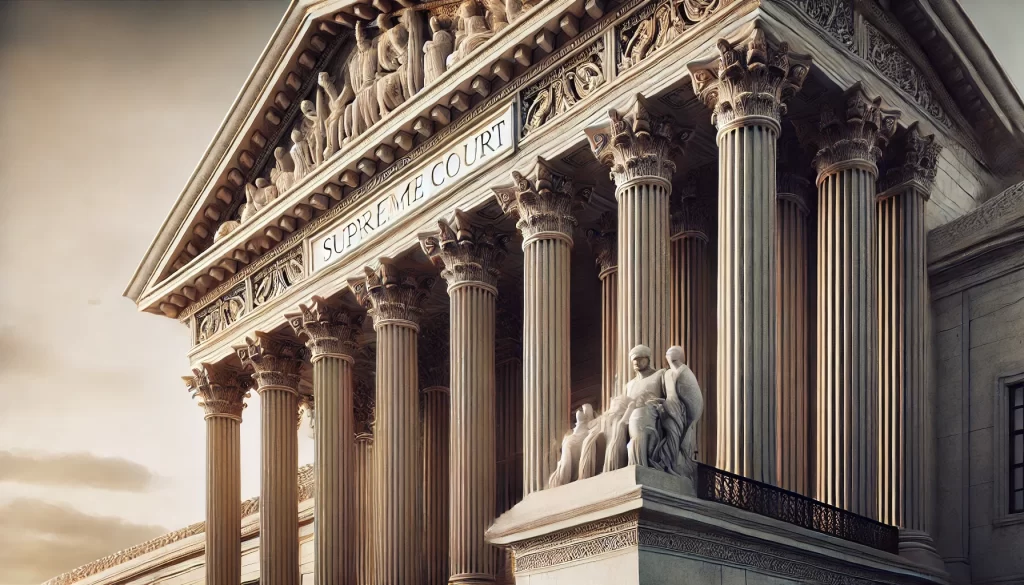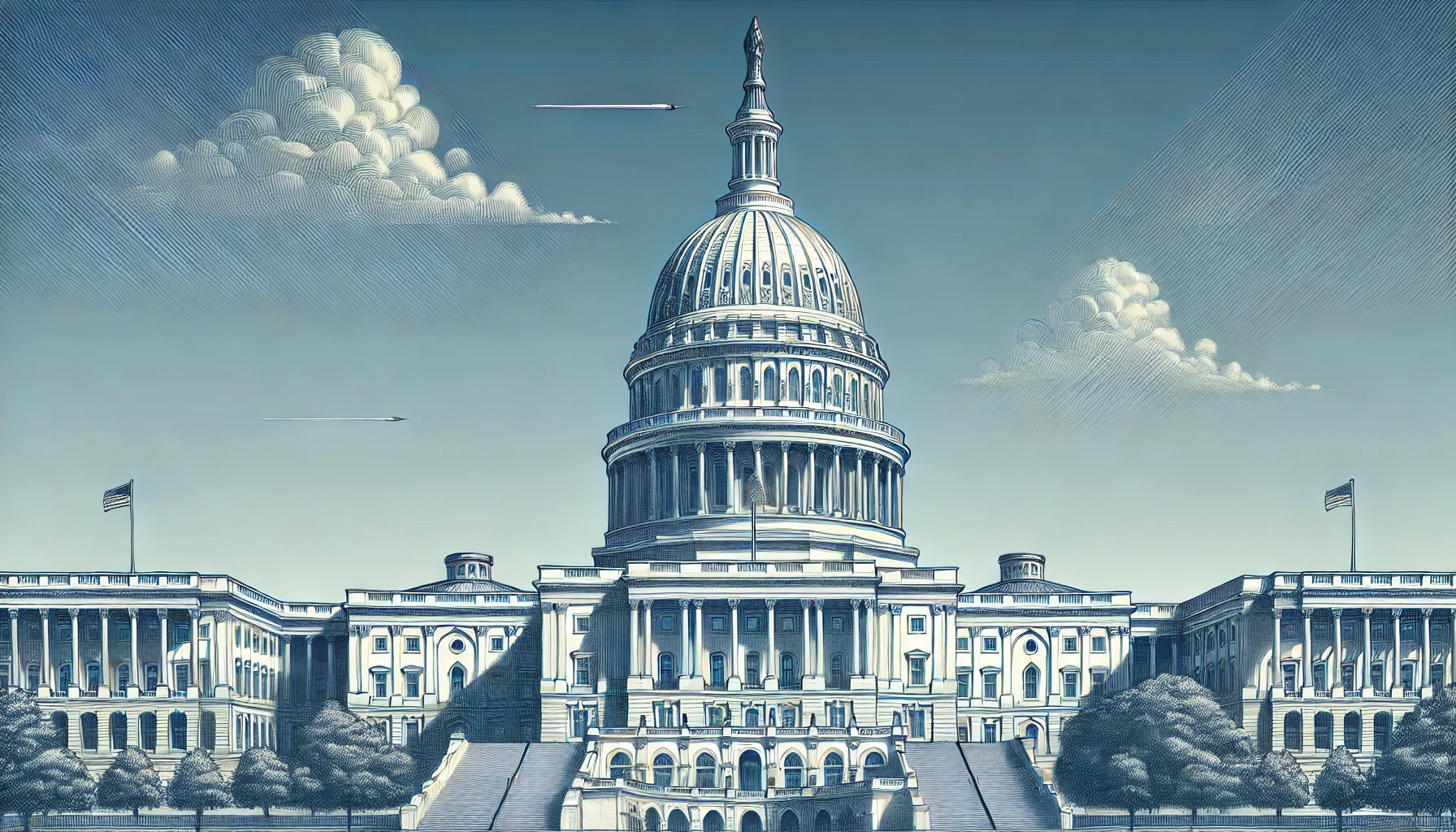On Wednesday, Representative Alexandria Ocasio-Cortez (D-N.Y.) introduced articles of impeachment against Supreme Court Justices Clarence Thomas and Samuel Alito. She accuses them of not disclosing gifts from wealthy benefactors and failing to recuse themselves from cases where they had personal and financial interests.
Key Accusations
- Justice Clarence Thomas:
- Failure to Disclose Gifts: Justice Thomas is accused of not reporting gifts from billionaire Harlan Crow.
- Recusal Issues: He did not step back from cases where his wife, Virginia Thomas, had financial interests, especially related to efforts to overturn the 2020 election.
- Justice Samuel Alito:
- Flags Outside Home: Justice Alito did not recuse himself from cases despite flags linked to the “Stop the Steal” movement being flown outside his home.
- Undisclosed Trips: Alito did not disclose a fishing trip funded by Republican donor Paul Singer and later did not recuse himself from cases involving Singer.
Support and Reactions
The impeachment articles are co-sponsored by several House Democrats, including Representatives Barbara Lee, Rashida Tlaib, and Ilhan Omar. Ocasio-Cortez argues that the justices’ actions threaten American democracy and the integrity of the Supreme Court.

Public Opinion and Political Context
While there is little chance of the impeachment advancing in the Republican-controlled House, Democrats hope to highlight what they see as corruption in the Supreme Court. This move comes after a recent Supreme Court ruling that granted presidents broad immunity from prosecution, which Democrats believe undermines the rule of law.
Ocasio-Cortez stated, “The unchecked corruption crisis on the Supreme Court has now spiraled into a constitutional crisis threatening American democracy writ large.” She emphasized that the justices’ refusal to recuse themselves in critical cases represents an abuse of power and a threat to democracy.
Conclusion
The articles of impeachment against Justices Thomas and Alito highlight concerns about judicial ethics and the influence of wealthy donors on the Supreme Court. Democrats aim to use this issue to mobilize voters and push for reforms to ensure the integrity of the nation’s highest court.
This article is based on the following articles:
https://thehill.com/homenews/house/4764398-aoc-articles-of-impeachment-clarence-thomas-samuel-alito
https://www.nytimes.com/2024/07/10/us/politics/aoc-samuel-alito-clarence-thomas-impeach.html

Background Information
1. Understanding the Supreme Court and Its Justices
- The Supreme Court: The Supreme Court of the United States is the highest court in the country. It has the ultimate authority to interpret the Constitution and decide on important legal cases.
- Justices: There are nine justices on the Supreme Court. They are appointed by the President and confirmed by the Senate. Once appointed, they serve for life unless they retire, resign, or are impeached.
2. What is Impeachment?
- Definition: Impeachment is a process used to charge, try, and remove public officials, including judges, from office for misconduct. It is similar to a trial and is part of the system of checks and balances in the U.S. government.
- Process: Impeachment starts in the House of Representatives, which can vote to impeach (or formally accuse) an official. If the House votes to impeach, the case goes to the Senate, which holds a trial. A two-thirds majority in the Senate is required to convict and remove the official from office.
3. Why are Justices Thomas and Alito Facing Impeachment?
- Ethics and Recusal: Justices are expected to avoid conflicts of interest, meaning they should not participate in cases where they have personal or financial connections. This is called “recusal.”
- Gifts and Financial Disclosures: Justices must also disclose significant gifts and financial transactions to ensure they are not improperly influenced.
4. Key Allegations Against the Justices
- Justice Clarence Thomas:
- Undisclosed Gifts: He allegedly received and did not report valuable gifts and vacations from a billionaire named Harlan Crow.
- Failure to Recuse: Thomas did not step aside from cases where his wife, Virginia Thomas, was involved, especially those related to efforts to challenge the 2020 election results.
- Justice Samuel Alito:
- Flags and Bias: Flags associated with the “Stop the Steal” movement were flown outside his home, but he did not recuse himself from related cases.
- Undisclosed Travel: Alito did not disclose a luxury fishing trip paid for by a Republican donor, Paul Singer, and did not recuse himself from cases involving Singer.
5. The Role of Alexandria Ocasio-Cortez (AOC)
- Who is AOC? Alexandria Ocasio-Cortez is a Democratic Representative from New York. She is known for her progressive views and active role in politics.
- Impeachment Effort: AOC introduced the articles of impeachment against Justices Thomas and Alito, arguing that their actions undermine trust in the Supreme Court and pose a threat to democracy.
6. Recent Supreme Court Controversies
- Presidential Immunity Ruling: The Supreme Court recently ruled that presidents have significant immunity from prosecution, a decision that has been controversial, particularly in the context of former President Donald Trump’s legal issues.
- Impact on Public Opinion: These controversies have heightened concerns about the impartiality and ethics of the Supreme Court, leading to calls for reforms.
7. Possible Outcomes and Political Implications
- House and Senate Control: The impeachment articles have little chance of advancing in the House of Representatives, which is controlled by Republicans. However, the effort highlights ethical concerns that Democrats hope will resonate with voters.
- Future Reforms: If Democrats gain control of the House, they may push for reforms, such as term limits for justices, a formal code of ethics, and increased oversight of the Supreme Court.
8. Why This Matters
- Checks and Balances: The impeachment process is a crucial part of the U.S. system of checks and balances, ensuring that no branch of government becomes too powerful.
Judicial Integrity: Ensuring the integrity and impartiality of the Supreme Court is essential for maintaining public trust in the judicial system and the rule of law.

Debate/Essay Questions
- Should Supreme Court justices be required to disclose all gifts and financial transactions? Why or why not?
- Is impeachment an effective tool for holding Supreme Court justices accountable? Why or why not?
- How should the Supreme Court handle cases where a justice fails to recuse themselves despite a clear conflict of interest?
- What impact does public opinion have on the functioning and decisions of the Supreme Court?
- Should there be term limits for Supreme Court justices? Why or why not?
- How important is public trust in the judiciary for the functioning of a democratic society?
- What role should Congress play in overseeing the conduct of Supreme Court justices?
- How might the impeachment efforts against Justices Thomas and Alito affect future Supreme Court cases and decisions?
Please subscribe to Insight Fortnight, our biweekly newsletter!
